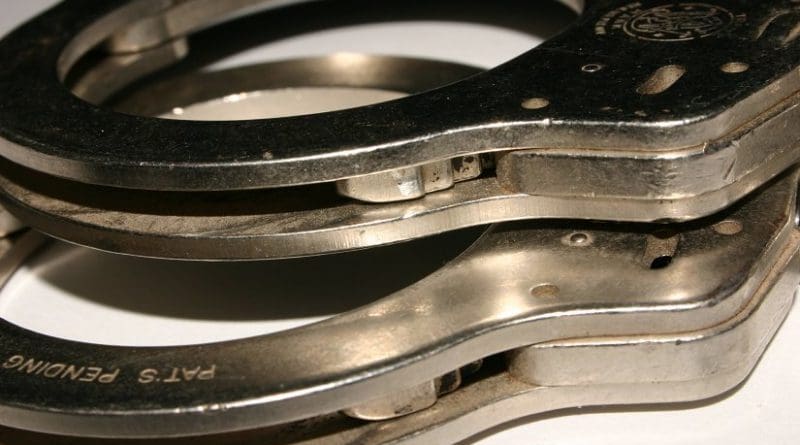Tajikistan: Human Rights Lawyer Abdulmachid Rizoyev At Risk Of Torture – OpEd
By IPHR
Human rights lawyer Abdulmachid Rizoyev, imprisoned since June 2021 for posting humorous comments on Facebook, has not been able to see any of his lawyers since 11 August 2021 and since 4 September his family has not been permitted to visit him. International Partnership for Human Rights (IPHR) is concerned that the lack of contact with the outside world significantly increases the risk that he will be subjected to torture or other forms of ill-treatment. Abdulmachid Rizoyev has been imprisoned to punish him for peacefully exercising his right to freedom of expression and he should be released immediately and unconditionally.
On 14 June 2021, Shokhmansur District Court of Dushanbe sentenced Rizoyev to five and a half years’ imprisonment in a high security prison after finding him guilty of “public calls to carry out extremist activity through the media or the internet” (Article 307 of the Criminal Code). In July, one of Rizoyev’s lawyers filed a complaint with the Cassation Instance of Dushanbe City Court urging the court to annul the verdict and close the case against the human rights lawyer, but the court did not satisfy the complaint. In September 2021, his term was reduced to three years’ imprisonment under an amnesty law marking the 30th anniversary of Tajikistan’s independence.
The charges against Abdulmachid Rizoyev were based on a number of posts he had made on Facebook, which the prosecutor claimed were “hidden calls for extremism”, although they did not feature any kind of reference to violence. For example, the prosecutor found “hidden extremist” content, in one post where Rizoyev wrote that “A wise government fights the roots of protests, an ignorant government fights the protesters.” The following post was also deemed to represent a call for extremism: “We, Tajikistanis, come in the third category here: 1) The people have to live well. 2) The people have to live. 3) The people have to.”[i]
In court, Rizoyev maintained his innocence and stated that he had never held or promoted extremist views. IPHR is concerned that the criminal case was fabricated to punish him for his professional work defending the rights of Dushanbe residents whose homes were due to be demolished to make way for new construction projects. Previously he also provided legal assistance to military conscripts and soldiers subjected to abuse.
At the end of August, Rizoyev was transferred to correctional facility no. 3/5 of the Department of Implementation of Criminal Punishments of the Ministry of Justice (further GUIN, after the Russian acronym). On both 14 September and 15 October, at the request of Rizoyev’s relatives, his lawyer filed complaints to GUIN and to the administration of correctional facility no. 3/5 urging them to be admitted to see Rizoyev. However, the authorities have not responded and the lawyer has not seen his client since the cassation court hearing took place on 11 August.
On 30 October 2021, staff of institution no. 3/5 informed Rizoyev’s lawyer that Rizoyev was being held in a punishment cell for violating prison rules (Article 120 part 1 of the Code on the Implementation of Sentences). No further details are known about why he was sent to the punishment cell, how long he has to spend there, whether he was able to familiarize himself with the accusations and whether he was given the opportunity to defend himself and seek legal advice. Prisoners held in punishment cells are prohibited from meetings, making telephone calls, purchasing food and receiving parcels. They have the right to one hour’s daily exercise. The total stay in a punishment cell cannot exceed sixty days in one year.
On 26 November 2021, the UN Special Rapporteur on Human Rights Defenders stated that in a communication to Tajikistan in September 2021 the Special Rapporteur had raised concerns over the imprisonment of Rizoyev, including allegations indicating ‘ that Mr. Rizoyev exercising right to freedom of expression online has been misrepresented as an expression of extremist views and ideologies, and in turn, charges of extremism have been levied against him in response to the legitimate exercise of his legal profession’. The statement continued ‘If confirmed, the apparent criminalisation of the exercise of human rights would be incompatible with international human rights law. We are concerned that such allegations of extremism will not only denigrate Mr. Rizoyev’s efforts to defend the rights of others, but also the efforts of other human rights defenders in Tajikistan, creating a chilling effect. We also wish to express our utmost concern regarding the information, which would indicate that the targeting of Mr. Rizoyev is in reprisal for his work defending the evicted residents of the building in Dushanbe and criticism of the company Pulodi Plaza LLC. According to the information received, it would appear that Mr. Rizoyev’s Facebooks posts were unduly subjected to scrutiny and unwarranted mischaracterization in attempts to deter him from carrying out his legitimate human rights activities’.
Rizoyev’s lawyer is currently attempting to obtain a written answer to requests for visits and details about the disciplinary measures imposed on him in October.
In recent years, the authorities of Tajikistan have seriously curtailed fundamental rights including the right to freedom of expression. Journalists, human rights lawyers and civil society activists have been particularly affected.
[i] Further information about the accusations against him can be found here.

